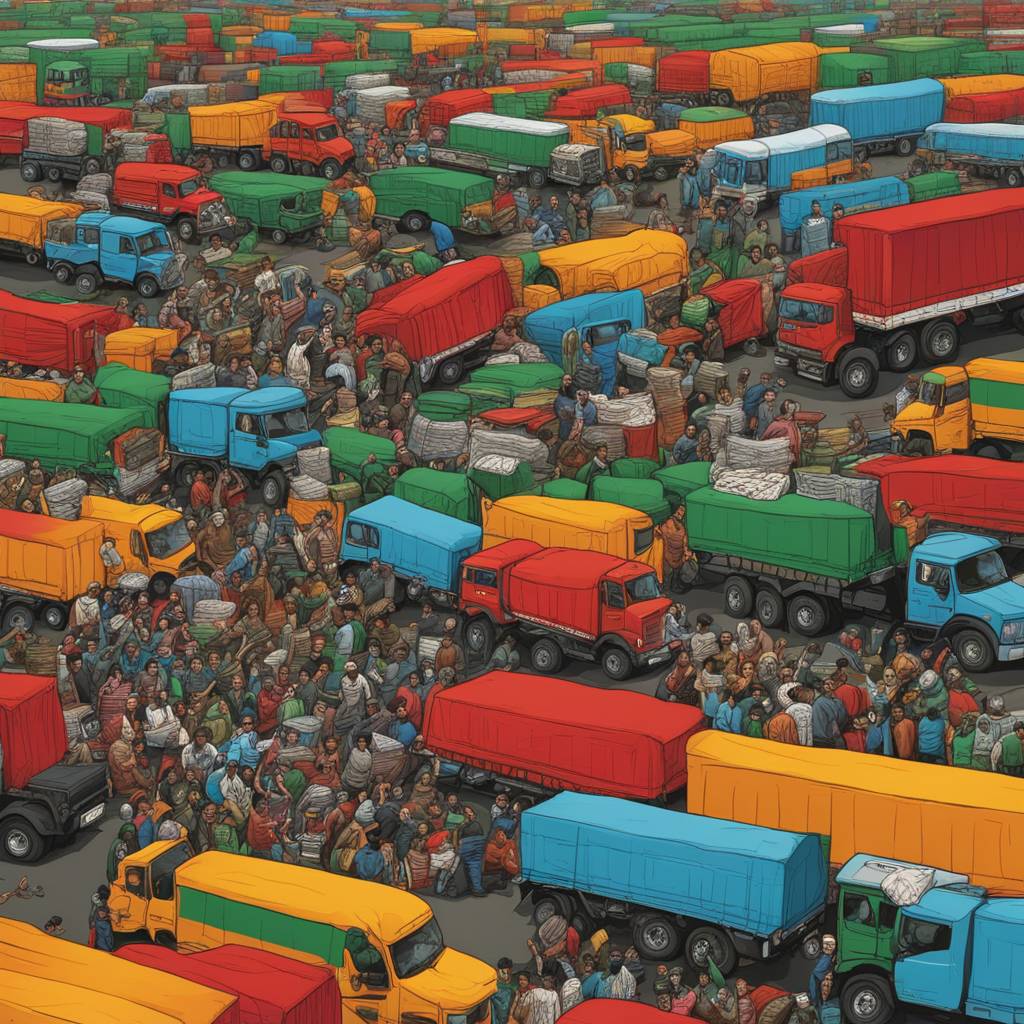An NBC News team in Rafah reported seeing a large number of trucks waiting to enter Gaza, with satellite images also showing trucks on the road and near the border crossing. However, restrictions imposed by Israel have resulted in only about half the number of trucks needed being able to enter Gaza each day. Some trucks are turned away for various reasons, such as not meeting the exact dimensions required by the Israeli government. The Israeli agency responsible for approving aid into Gaza, COGAT, claims that 99% of aid trucks are approved after being screened, but some items face higher security scrutiny.
Israeli officials have refused a recent request by NBC News to report on the situation at the Kerem Shalom border crossing, citing restricted access to the area. Israel has also accused UNRWA, the U.N.’s Palestinian refugee agency, of failing to distribute aid effectively. COGAT claims that UNRWA has not requested convoys to distribute aid for six weeks. UNRWA, on the other hand, accuses Israel of obstructing aid efforts by rejecting convoys and turning away trucks carrying items such as scissors in medical kits. There are also cases where items are rejected based on how they are stored, such as insulin being kept in freezers.
Distribution of aid within Gaza, particularly in the northern area, has been a struggle with inconsistent access and delays at checkpoints. The World Food Programme has described convoy journeys to the north as dangerous due to crowds and security issues. UNRWA Commissioner-General Philippe Lazzarini has accused Israel of intentionally obstructing aid distribution, especially in northern Gaza, where famine is imminent. COGAT, however, claims to have facilitated hundreds of trucks of aid to northern Gaza in the past month and accuses UNRWA workers of having ties to terrorism.
The Integrated Food Security Phase Classification initiative has warned of an impending famine in Gaza, particularly in the north where malnutrition-related deaths have been reported. The World Health Organization has also raised concerns about children dying from a combination of malnutrition and disease and warned of long-term health implications for Gazans. WHO Director-General Tedros Adhanom Ghebreyesus has called for immediate action to prevent famine in Gaza despite increased aid efforts. The distribution of aid in Gaza remains a complex and challenging issue due to restrictions and security concerns imposed by Israel and accusations from both sides regarding aid distribution.













